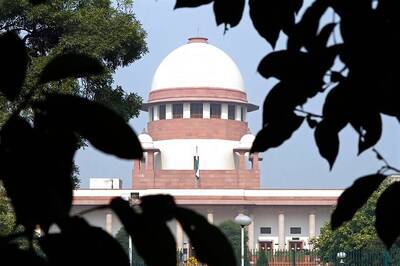
views
CHENNAI: The proceedings of the TN government to acquire land belonging to Sri Venkateswara Educational and Charitable Trust in Cheyyar in Tiruvannamalai district for expansion of SIPCOT Industrial Estate has been upheld by the Madras High Court.Justice K Chandru upheld the proceedings while dismissing a writ petition filed by the SVEC Trust challenging the notification issued by the State government under section 3 (1) of the Tamil Nadu Acquisition of Land for Industrial Purposes Act, recently.According to the Trust, the State government had published a notification for acquiring an extent of 25.71.0 hectares. The trust had sent a letter to the District Collector seeking exemption of 14.69.0 hectares to start an engineering college. The letter was forwarded to the Special Commissioner/Commissioner for Land Administration recommending dropping of lands from the acquisition proceedings. When the matter was pending, the State had issued a final notification asking the petitioner to surrender the land. Even after this notification, the petitioner was corresponding with the government. Since no response was forthcoming from the State, the Special Commissioner had directed the District Collector to send an appropriate report to the government. It was at this stage, the present petition was filed.During the course of hearing the additional government pleader produced a GO dated March 27, 2012 rejecting the request for exemption on the ground that the exemption, if granted, would disturb the continuity of the scheme. S Vadivelu, counsel for the petitioner, placed reliance on the fact that the authority below had recommended for an exemption, but that was not considered in the impugned order. Justice Chandru said that the petitioner could not seek for exclusion of its land from the acquisition. There was no construction activity in the lands in question as per the communication of the District Collector. SIPCOT had opined that any exemption would affect their expansion programme, he pointed out.“In view of the above, there is no case made out to entertain the petition. This court is satisfied that necessary statutory procedures have been followed before invoking the power under the TALIP Act,” the judge added and dismissed the petition.



















Comments
0 comment